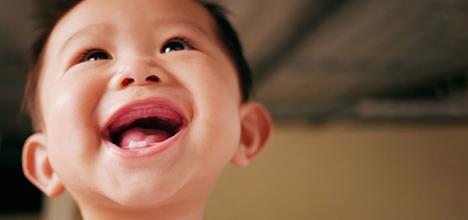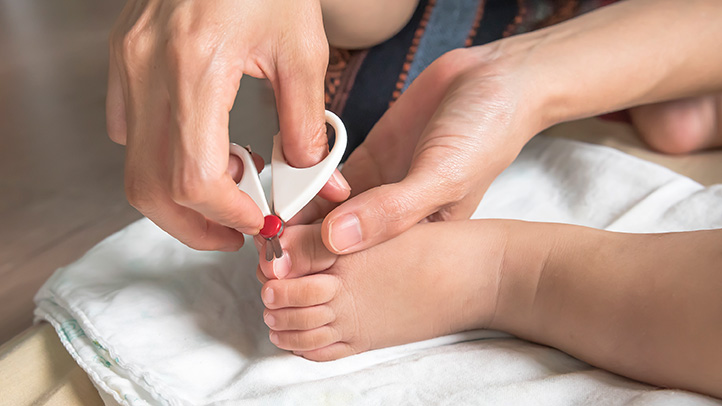Yes, baby teeth need special care. They are crucial for chewing, speaking, and guiding permanent teeth into place.
Baby teeth, often called primary teeth, play a vital role in a child’s development. They help with chewing food, speaking clearly, and maintaining space for permanent teeth. Neglecting baby teeth can lead to cavities, infections, and misaligned permanent teeth. Regular dental check-ups, proper brushing, and a balanced diet are essential for maintaining healthy baby teeth.
Parents should supervise brushing and use fluoride toothpaste. Limiting sugary snacks and drinks can also prevent tooth decay. Establishing good dental habits early ensures a lifetime of healthy smiles. Prioritizing baby teeth care sets the foundation for overall oral health.

Credit: valleycreekdentalcare.com
Importance Of Baby Teeth
Baby teeth are not just for chewing. They play many vital roles in a child’s life. Taking care of baby teeth ensures healthy growth and development.
Role In Development
Baby teeth help children learn to speak. Clear speech depends on the proper alignment of teeth. They also help kids chew food properly, aiding in digestion. Baby teeth hold space for adult teeth. This prevents alignment issues later on.
Long-term Oral Health
Healthy baby teeth mean fewer dental problems. Cavities in baby teeth can affect adult teeth. Early loss of baby teeth can lead to crooked adult teeth. Good care of baby teeth sets the stage for lifelong oral health.
| Role | Importance |
|---|---|
| Speech | Helps in clear pronunciation of words. |
| Chewing | Aids in proper digestion of food. |
| Alignment | Prevents future dental issues. |
- Speech: Baby teeth help kids speak clearly.
- Chewing: They allow proper chewing of food.
- Alignment: They hold space for adult teeth.
When To Expect Baby Teeth
Understanding when to expect baby teeth is essential for parents. Knowing the typical timeline and recognizing signs of teething can help you prepare.
Typical Timeline
Baby teeth, also known as primary teeth, usually appear in a specific order. Here’s a typical timeline:
| Age | Teeth |
|---|---|
| 6-10 months | Lower central incisors |
| 8-12 months | Upper central incisors |
| 9-13 months | Upper lateral incisors |
| 10-16 months | Lower lateral incisors |
| 13-19 months | First molars |
| 16-22 months | Canines |
| 25-33 months | Second molars |
Signs Of Teething
Teething can be a challenging time for both babies and parents. Recognize these common signs:
- Increased drooling
- Chewing on objects
- Irritability or fussiness
- Sore or tender gums
- Decreased appetite
- Disturbed sleep
Knowing these signs can help you provide comfort and care for your baby.
Daily Care Routine
Ensuring your baby’s teeth stay healthy is crucial. A consistent daily care routine can prevent cavities and other dental issues. This routine includes proper brushing techniques and choosing the right toothpaste.
Brushing Techniques
Use a soft-bristled toothbrush for your baby. Brush twice a day, in the morning and before bed. Hold the toothbrush at a 45-degree angle to the gums. Use gentle, circular motions to clean all surfaces of the teeth.
Spend at least two minutes brushing. Pay special attention to the back teeth. These areas are more prone to cavities. Don’t forget to brush the tongue to remove bacteria.
Choosing The Right Toothpaste
Select a fluoride toothpaste for your baby. Fluoride helps to strengthen the tooth enamel. Use a rice-sized amount for children under three years old. For kids aged three to six, use a pea-sized amount.
Ensure the toothpaste has a pleasant taste. This makes brushing more enjoyable for your baby. Always supervise your child to avoid swallowing toothpaste.
| Age | Toothbrush | Toothpaste Amount |
|---|---|---|
| Under 3 years | Soft-bristled | Rice-sized |
| 3-6 years | Soft-bristled | Pea-sized |
- Brush twice a day to maintain oral health.
- Use gentle, circular motions when brushing.
- Choose a fluoride toothpaste to protect teeth.
- Supervise to ensure proper brushing habits.

Credit: www.oasispediatricdentalcare.com
Preventing Cavities
Preventing cavities in baby teeth is essential for healthy smiles. Early dental care ensures strong and healthy permanent teeth. Let’s explore how to prevent cavities in baby teeth.
Dietary Tips
Healthy eating helps keep baby teeth strong. Here are some tips:
- Avoid sugary snacks: Sugar can cause cavities.
- Limit juice: Juice contains natural sugars that can harm teeth. Offer water instead.
- Encourage vegetables: Crunchy veggies help clean teeth.
- Provide dairy: Milk and cheese strengthen teeth with calcium.
Fluoride Use
Fluoride helps prevent cavities. Here’s how to use it safely:
- Use fluoride toothpaste: A small smear for babies under 3. A pea-sized amount for older kids.
- Drink fluoridated water: It helps strengthen teeth from within.
- Consider fluoride treatments: Your dentist can apply fluoride for extra protection.
Follow these tips to keep your baby’s teeth cavity-free. Healthy habits start early!
Handling Teething Pain
Teething can be a tough time for both babies and parents. It’s crucial to understand how to handle teething pain effectively. This section will provide you with various methods to soothe your baby’s discomfort.
Home Remedies
There are several home remedies to help ease your baby’s teething pain. These are safe and effective ways to provide relief.
- Cold Washcloth: Dampen a clean washcloth and chill it. Let your baby chew on it to soothe their gums.
- Teething Toys: Use chilled (not frozen) teething rings or toys. These can help numb the pain and massage the gums.
- Massage: Gently rub your baby’s gums with a clean finger. This can provide immediate relief.
- Breastfeeding: Nursing can offer comfort and distraction from the pain.
When To Consult A Pediatrician
Knowing when to consult a pediatrician is vital for your baby’s health. While home remedies are helpful, there are times when professional advice is necessary.
| Signs to Look For | Why Consult a Pediatrician? |
|---|---|
| High Fever | Could indicate an infection or other illness. |
| Diarrhea | Persistent diarrhea might require medical attention. |
| Severe Irritability | Unusual fussiness could be a sign of more serious issues. |
| Rashes | Rashes around the mouth or on the body should be checked. |
If you notice any of these signs, contact your pediatrician immediately. Early intervention can prevent complications and ensure your baby stays healthy.

Credit: www.healthychildren.org
First Dental Visit
The first dental visit is crucial for your baby’s oral health. It’s essential to start dental care early. This visit sets the foundation for future dental habits.
Ideal Timing
The ideal time for the first dental visit is by age one. Experts recommend this timing to catch any early issues. Early visits help your child get used to the dentist.
This age allows the dentist to check baby teeth growth. They can also provide tips for oral care at home. It’s a great way to ensure your baby’s teeth develop well.
What To Expect
The first dental visit will be short and simple. The dentist will examine your baby’s mouth. They will check for any signs of decay or issues.
Expect the dentist to clean your baby’s teeth gently. They may use soft brushes and special tools. This helps remove any plaque build-up.
Parents will receive advice on brushing and flossing. The dentist will guide you on how to care for baby teeth. They may discuss fluoride use and proper nutrition.
Your baby may feel a bit uneasy at first. It’s normal for them to be curious or fussy. Comforting your child can help make the visit easier.
| Aspect | Details |
|---|---|
| Timing | By age one |
| Examination | Check for decay, growth issues |
| Cleaning | Gentle cleaning with soft tools |
| Advice | Brushing, flossing, fluoride, nutrition |
Remember, the first dental visit is a step towards a healthy smile. It’s important to make it a positive experience. This will help your child develop good dental habits early on.
Common Dental Issues
Baby teeth are essential for your child’s development. Proper care is crucial. Common dental issues can affect your baby’s oral health. Addressing these issues early can prevent future problems.
Tooth Decay
Tooth decay is a common issue in babies. It occurs when sugars in milk or juice cause bacteria growth. This bacteria creates acid that attacks the teeth.
- Limit sugary drinks and snacks.
- Clean your baby’s teeth twice a day.
- Use a soft-bristled toothbrush.
Regular dental check-ups are important. A dentist can spot early signs of decay.
Thumb Sucking
Thumb sucking is a natural reflex for babies. It can soothe and comfort them. But, prolonged thumb sucking may cause dental issues.
| Age Group | Potential Issues |
|---|---|
| 0-2 years | Usually harmless |
| 3-4 years | May affect teeth alignment |
| 5+ years | Can lead to bite problems |
Encourage your child to stop thumb sucking by age 4. Positive reinforcement can help. Offer praise and rewards for not sucking their thumb.
Transition To Permanent Teeth
The transition from baby teeth to permanent teeth is a crucial stage. This phase affects a child’s dental health for life. Proper care and attention are essential during this period. Let’s explore how to monitor growth and maintain oral hygiene during this transition.
Monitoring Growth
Monitoring the growth of permanent teeth is vital. Keep an eye on the order of tooth eruption. Typically, the first permanent molars appear around age six. Front teeth follow soon after. Ensure the teeth are erupting in the correct sequence.
Regular dental check-ups can help track this process. Dentists use X-rays to see how the new teeth are growing. This can prevent issues before they become serious.
| Age | Teeth Erupting |
|---|---|
| 6-7 years | First molars and central incisors |
| 7-8 years | Lateral incisors |
| 9-11 years | First premolars |
| 10-12 years | Second premolars |
| 11-13 years | Second molars |
Maintaining Oral Hygiene
Maintaining oral hygiene is crucial during the transition. Brushing and flossing are key. Children should brush their teeth twice daily. Use a fluoride toothpaste for better protection.
Flossing removes food particles stuck between teeth. Teach children to floss daily. Supervise their brushing and flossing until they master the technique.
- Brush twice a day with fluoride toothpaste.
- Floss daily to remove food particles.
- Regular dental check-ups are essential.
Encourage healthy eating habits. Limit sugary snacks and drinks. Sugary foods can cause cavities and other dental issues.
Provide a balanced diet rich in fruits, vegetables, and dairy. Good nutrition supports healthy tooth development.
Remember, early care ensures a lifetime of healthy smiles.
Frequently Asked Questions
Do You Need To Take Care Of Baby Teeth?
Yes, caring for baby teeth is essential. They help with eating, speaking, and guiding permanent teeth. Neglect can lead to decay.
Is It Necessary To Treat Baby Teeth?
Yes, treating baby teeth is necessary. Healthy baby teeth help with chewing, speaking, and guiding permanent teeth. Neglect can lead to pain and infections.
Is It Worth Fixing Baby Teeth?
Yes, fixing baby teeth is worth it. Healthy baby teeth prevent pain, aid in chewing, and ensure proper speech development.
Does The Health Of Baby Teeth Matter?
Yes, the health of baby teeth matters. Healthy baby teeth are essential for chewing, speaking, and guiding permanent teeth. Ignoring baby teeth can lead to decay, pain, and infections. Proper oral care from a young age ensures long-term dental health.
Conclusion
Caring for baby teeth is essential for long-term dental health. Establish good habits early to prevent future issues. Regular dental check-ups and proper brushing techniques make a big difference. Healthy baby teeth set the foundation for a lifetime of strong teeth.
Prioritize their care to ensure a bright, healthy smile for your child.

